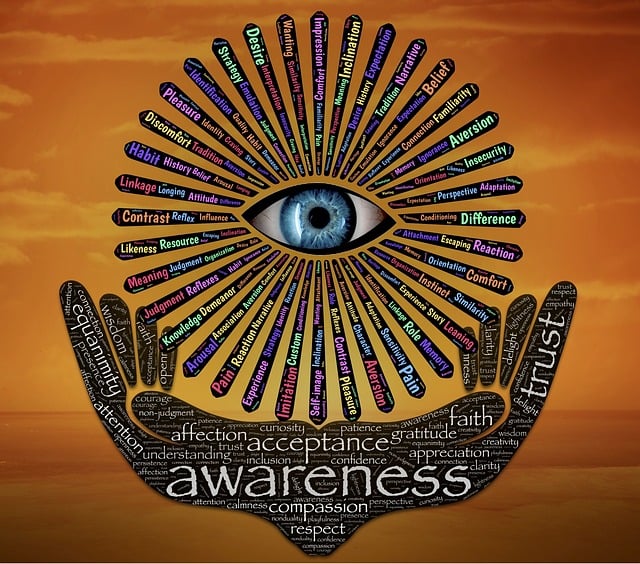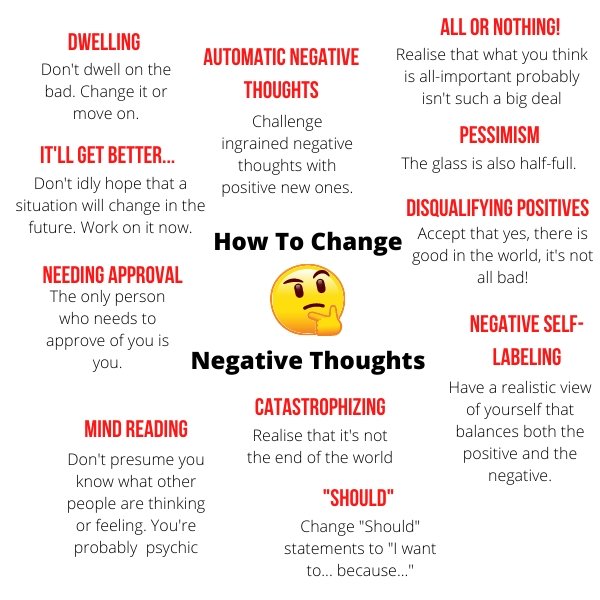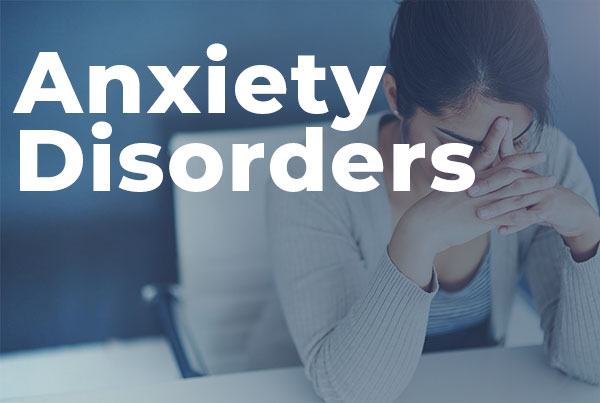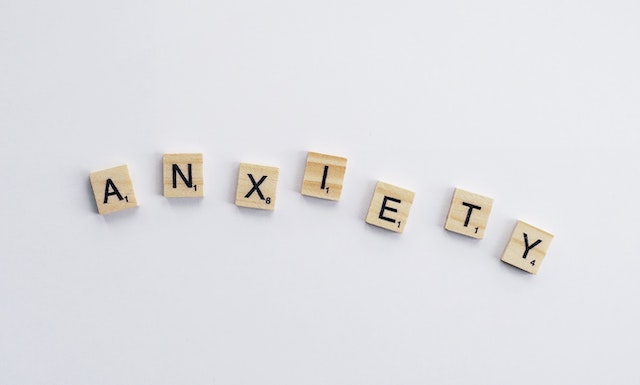
The dangers of FOMO (Fears Of Missing Out). How to not fall into that trap and find happiness in life.
If you all recall the events that transpired during the peak of the pandemic in the real estate market, a situation unfolded where numerous people were competing for homes that were significantly overpriced. Sellers were receiving an excess of 10 to 20 bids, and sometimes even more, all exceeding the listed price by up to $100,000. This frenzy was driven by the belief that missing out on purchasing a home in this red-hot market would result in them losing the opportunity to secure a new home with a 3% mortgage interest rate. Consequently, many new homeowners found themselves outbid and unable to afford the already inflated asking prices. This situation induced a sense of fear of missing out on the limited opportunities available, prompting some to resort to renting, which was also subject to high prices.
FOMO, or the fear of missing out, is a phenomenon that affects a growing number of people. These individuals typically fall into one of two categories: those who overcommit and grapple with fulfilling their commitments, and those who actively avoid making commitments altogether. Their choices are often motivated by the fear that committing to one thing might mean missing out on other opportunities that could offer greater personal satisfaction and fulfillment. Many individuals experiencing FOMO express a shared sentiment: “I prefer to keep my options open.”
Here are some successful methods to steer clear of getting caught in the whirlpool of missing out on what are supposedly “fantastic opportunities.” You won’t feel as though your life is falling apart if you choose not to join the masses who follow the crowd and feel adrift if they don’t follow the herd of sheep all doing the same thing.

- Take it easy.
Many of us operate at a quicker tempo than what’s truly needed or advantageous for our well-being. Try to be more deliberate when eating, driving, conversing, connecting intimately, or handling your daily routines. Placing reminders of this goal in visible locations can be a helpful self-support technique. In the past, we had a sign in our garage with a straightforward message: “Slow Down.” It proved to be effective.

- Pursue the journey, not the status.
There will always be individuals we admire and, at times, feel envious of. It’s the classic “grass is greener on the other side” mentality. Envy can easily transform into resentment unless we acknowledge the opportunities within our own lives to create enriching experiences.
By concentrating on the underlying experience – the sense of achievement, adventure, connection, joy, self-worth, and freedom – rather than fixating on the object or symbol itself – like wealth, marriage, a fancy car, or a luxurious home – we gain the ability to discern true fulfillment from mere momentary pleasure. Pleasure is undoubtedly delightful, but an excessive fixation on it can hinder our capacity to savor the deeper satisfaction that springs from nurturing our inner selves.

- Concentrate on one task at a time.
Even if those around us are juggling multiple tasks, we don’t need to do the same. Since the 1990s, psychologists have conducted experiments on the limits of multitasking, and the findings are clear: Individuals experience significant interference when trying to perform even the simplest tasks simultaneously. The human brain can effectively respond to one task at a time.
When individuals attempt to tackle too many tasks simultaneously, they often don’t succeed. On the other hand, when they concentrate on a single task and give it their undivided attention, they not only have a higher likelihood of achieving a high-quality outcome but also derive greater satisfaction from the task itself.

- Give precedence to relationships over materialism.
When it comes to our overall happiness, the depth and quality of our relationships consistently surpass the quantity of possessions and experiences. Devoting our time and effort to nurturing relationships, along with developing the necessary skills, can be one of the most effective ways to introduce greater levels of satisfaction into our lives. This serves as a fantastic remedy for the compulsive behavior often associated with FOMO.

- Foster a mindset of thankfulness.
Rather than pursuing dreams we think will bring us contentment, we can nurture a sense of gratitude. This approach enables us to gain a deeper appreciation for what we currently possess, as opposed to fixating on what we’re missing or yearning for. FOMO stems from the fear of lacking something essential for our well-being. Gratitude empowers us to acknowledge the blessings in our present life, in the here and now, where life is unfolding.

- Enjoy the ride.
Incorporating these habits into your life can become a joyful endeavor, seen as a gift and an avenue for growth, rather than a set of responsibilities. Allow yourself to relish the increased sense of calm and simplicity that these practices bring into your life. Remember, it’s not just you who reaps the rewards; everyone in your life benefits from shedding FOMO!
Falling victim to the clutches of FOMO occurs because many people have a tendency to observe those who are engaged in activities they hadn’t considered, and because of these observed actions and behaviors, they often emulate them by replicating them. The feeling of missing out on something doesn’t typically arise spontaneously unless one witnesses others eagerly seizing opportunities that may not be suitable for them. It’s important to shift your attention to what truly matters to you and avoid investing time in imitating others just because it’s a current trend. Prioritize what brings you happiness, and remember that sometimes, less is more.
Learn More
Why is self-awareness the stepping stone to your life’s success?

In our constantly changing world, the path to success can seem intricate and varies from person to person. Success isn’t solely measured by material wealth; rather, it often revolves around pursuing activities we are passionate about, regardless of their financial outcomes. Many Americans dislike their jobs and eagerly await retirement or weekend plans, leading to a drop in productivity. However, they may not realize that alternative options exist. While family responsibilities can contribute to this situation, it’s crucial to acknowledge that prolonged unhappiness can have negative psychological effects.
Living in a massive mansion, as a way to “keep up with the Joneses,” may not be necessary. Instead, the key is to prioritize your happiness and self-awareness, as these elements are essential for improving your overall quality of life.
Furthermore, self-discovery serves as the foundation for personal growth and achievement. This process involves exploring our values, strengths, passions, and weaknesses. Without self-awareness, it becomes challenging to set meaningful goals and stay motivated. Self-awareness also encourages self-reflection through practices like meditation, journaling, or contemplation, which can provide clarity and help align our actions with our authentic selves.

Setting Meaningful Goals
After establishing a strong connection with your inner self, cognitive behavior psychotherapists with expertise recommend creating objectives that deeply align with your core values and passions. This alignment serves as a wellspring of enduring motivation and unwavering dedication to pursuing your dreams wholeheartedly. Dr. Dan’s approach involves breaking down these objectives into smaller, attainable tasks. This not only simplifies the journey, making it less daunting, but also offers opportunities for frequent milestones. These milestones play a pivotal role in maintaining motivation and ensuring steady and consistent progress toward your goals.

Overcoming Limiting Beliefs
Limiting beliefs often present a significant hurdle on the path to success. These beliefs typically originate from a fear of failure, acting as barriers that impede your progress toward achieving your goals. It’s crucial to distinguish limiting beliefs from recognizing your current skill set. We are not suggesting that individuals with backgrounds in philosophy or dentistry suddenly aim to construct a rocket ship for a mission to Mars. It’s essential to be self-aware of your skill set and avoid setting unrealistic expectations.
Moreover, enhancing your skills through daily practice can significantly boost your capacity to succeed in your chosen field and expedite your progress toward your goals. To expedite your journey, it’s beneficial to practice self-compassion. Instead of harshly criticizing yourself when facing perceived failures, it’s important to treat yourself with kindness and understanding. If the opportunity arises, seeking guidance and support from mentors, coaches, or trusted friends can also be invaluable in your pursuit of success, tailored to your unique path.

Dealing with setbacks
Facing setbacks is an inherent aspect of any undertaking. Instead of viewing failure as a negative outcome, it can be seen as a valuable opportunity for personal growth and learning. Consider the acronym “FAIL” as an acronym for “First Attempt In Learning.”
While any form of failure may appear to be influenced by your thoughts and actions, it’s crucial to adopt an approach that involves impartially examining setbacks. What can you learn from these experiences, and how can you adapt your approach going forward? By reframing setbacks as stepping stones rather than insurmountable obstacles, you’ll maintain the resilience needed to persevere in your pursuits.

Boosting Self-Confidence
Confidence plays a pivotal role in the journey to success, and each small triumph is a chance to celebrate your accomplishments, no matter how modest they may seem. Recognizing your progress nurtures a positive self-image and reinforces your belief in your capabilities.
It’s also essential to emphasize the significance of maintaining positive self-talk. By replacing self-defeating thoughts with affirmations and constructive language, you can transform your self-perception. Confidence is a skill that can be developed and cultivated over time.
In the same way that happiness is not a destination but rather a continuous journey, success follows a similar principle. Success is more of a voyage marked by self-discovery and growth. By adhering to this straightforward principle, you can embark on the path of self-discovery, set meaningful goals, overcome self-doubt, navigate setbacks, and build the confidence needed to achieve your aspirations. Success begins with embracing your authentic self.
Learn More
Avoiding these narcissistic parenting styles or your children may follow similar narcissistic behaviors. Some hope in sight.

To prevent your children from adopting narcissistic behaviors, it is crucial to avoid two distinct parenting approaches. These parenting styles can have similar detrimental effects, resembling the parallel between narcissism and obesity when raising children in a toxic mental and physical environment. The end result may be different in expression, with one involving manipulative behaviors towards others and the other leading to morbid obesity, but the underlying dangers persist, yielding undesirable outcomes.
When parents have a tendency to overeat, their children are more likely to follow suit due to limited choices, as parents are the ones responsible for grocery shopping. If an abundance of unhealthy food is readily available at home, children are more likely to consume what is accessible.
Conversely, when parents exhibit narcissistic behaviors, their offspring tend to view such behavior as normal, as they witness it in their daily lives. Unlike the consistent nature of overeating leading to obesity, the narcissistic environment parents create can manifest in opposite ways while ultimately resulting in the same outcome.

Allow me to elaborate: There are two distinct parenting styles that can lead a child to develop narcissistic tendencies, and interestingly, these styles are polar opposites. One style involves neglectful parenting, which traumatizes children and impairs their self-esteem and ability to form healthy attachments with others in adulthood. The opposite style path involves overindulgent parenting, fostering a sense of entitlement and narcissism in the child’s future.
Children learn through observation. Growing up in a household where their feelings were ignored teaches them that acknowledging and respecting others’ feelings and needs is unnecessary. Conversely, children who are spoiled and told that everything they do and feel is valid develop an inflated sense of self-worth. Both environments reinforce self-centeredness, where the child learns that others’ feelings are less important than their own, leading to poor emotional regulation skills.
The good news is that children can unlearn toxic behaviors more easily than adults. If you notice your child developing antagonistic traits, you can help by demonstrating good emotional regulation and mirroring their emotions. By validating their feelings, you can reduce shame, fear, and insecurity, which can drive narcissistic behaviors. Additionally, if your child throws a tantrum, you can guide them by asking three questions: “What happened?” “How are you feeling?” and “How do you think your reaction is affecting others?” This approach helps them develop empathy, social awareness, and emotional regulation skills.
All challenging children from narcissistic parents had one thing in common, which most will acknowledge their behavior.

Just as with fitness and health, there are specific habits that need to be modified in order to ensure long-lasting desired results. Consistently maintaining a healthy diet and regular exercise routines are vital components for achieving positive outcomes in the life of your offsprings. When it comes to narcissistic parenting styles, it is crucial to reflect on your own approach and make necessary adjustments before the situation deteriorates. Given that changing old habits or adopting new ones may take longer than the typical 45 to 60 days, the urgency of proactive solutions becomes apparent.
It’s essential to concentrate on identifying and addressing any harmful behaviors from the past that could negatively influence your children, such as neglect and lack of attention. However, it’s also important to be aware that excessive attention and an overbearing presence can have adverse effects on children. These changes need to originate from within, so it’s imperative to start taking action now before it gets too late.
Learn More
Taking self-criticism to the extreme: Strategies on how to exit this loop of negative self-thinking
Most psychologists would agree with this statement: “We are our own worst self-critic”. Thich Nhat Hanh shared a beautiful quote: “To be beautiful means to be yourself. You don’t need to be accepted by others. You need to accept yourself”
This quote highlights the significance of setting high standards and pursuing personal growth by accepting oneself without relying on validation from others. However, it cautions against self-imposed expectations that result in self-criticism and negative self-talk. It emphasizes how many individuals carry regrets and unfulfilled aspirations due to feelings of un-worthiness or un-deservingness.
Our internal dialogue often tends to be more critical compared to how we communicate with others. This pattern of negative self-talk can be incredibly damaging, often more than we realize. The issue lies in the fact that we have become so accustomed to this negative inner dialogue that we are not even conscious of it. Despite our lack of awareness, our mental and physical well-being are still affected by this harmful self-talk.
The aim of avoiding self-criticism is to learn to value oneself based on personal beliefs rather than seeking external validation. Breaking free from a shame-based self-image and the need for self-criticism and hateful self-talk becomes crucial in order to avoid falling into depression, which can hinder progress and success. There are several strategies for silencing the inner critic and breaking free from this cycle of detrimental thoughts that restrict belief in one’s own potential for success. The ultimate goal is to develop self-approval, self-love, positive relationships, and a sense of self-worth.

Strategy 1: What are your authentic wants and desires? What activities, passions, goals, needs, and wishes truly resonate with you? Take the time to identify and make a list of these, and honestly evaluate whether pursuing them would genuinely bring you a sense of fulfillment and joy.

Strategy 2: Practice mindfulness by observing your actions, reactions, and how others respond to you without passing judgment. Embrace self-acceptance and refrain from labeling yourself negatively. Deliberately cultivate positive emotions to break free from the habit of labeling yourself based on feelings of shame.

Strategy 3: Reduce self-criticism by acknowledging that making mistakes is a normal part of being human and doesn’t diminish your worth or intelligence. Develop a more objective perspective on your abilities and actions through self-compassion. Actively nurture positive emotions and gradually increase self-approval.

Strategy 4: Pay attention to your internal dialogue and be mindful of the language you use, as language holds significant power. Your internal dialogue is a reflection of your beliefs about reality. Monitor and consciously observe how you speak to yourself because your mind is receptive. If you wish to change your emotional state, simply reframe your thoughts and say, “I won’t allow these feeling of negative self-talk” or “I choose to only accept positive affirmation to enter my mind.” By doing so, you empower yourself to take control of your emotions.

Strategy 5: involve identifying your disappointments by understanding where they come from, examining the expectations that have led to those disappointments (whether self-imposed or from others), and evaluating if those expectations are truly valid. (obviously the image listed above is just a sarcastic narrative to what severe disappointment may mean to some people)
There is no magic solution to completely reverse the feelings of self-criticism and ongoing self-inflicted torment we subject ourselves to. Through constant comparisons with others on social media, we intensify this process, leading to heightened levels of anxiety and depression. We consciously allow this to happen, and we cannot blame anyone else but ourselves for permitting it. While it is true that some individuals have to deal with negative and toxic coworkers or family members who constantly belittle them, most of the time we inflict these hardships upon ourselves. It is important to initiate changes today to prevent long-term mental harm that can hinder our success and undermine our well-being.
Learn More
Why do some people live to eat while others, eat to live? The intricacies of food addiction.

There are many food lovers out there enjoying a good meal with friends, appreciating the culinary delicacies that Michelin type restaurants offers while charging exuberant fees for their 1/4 ounce steak and slice of potatoe. However, others would prefer a one dollar meal at the local Mc Donalds and feel satisfied without breaking the bank. The live to eat vs eat to live has become and obsession and while many do their best to keep a healthy lifestyle, some may take it to the extreme and fall under the spell of binge eating and morbid obesity.
So why are some so prone to become addicted to food? Plenty of eating disorders are plaguing our country and many will find comfort in food during moment of crisis while others will find food to be repugnant. Are our brains wired differently? Is Anorexia or Bulimia Nevrosa happens to particular people in our society vs those who do not mind distorting their bodies when gaining a considerable amount of weight.
Let’s first begin with food addiction.
Food addiction can develop for a variety of reasons, including biological, psychological, and environmental factors. Here are some of the possible ways food addiction can start:
- Genetics: Studies have shown that genetics can play a role in the development of addiction, including food addiction. Some people may have a genetic predisposition to addiction, making them more susceptible to developing an addiction to food.
- Brain chemistry: Certain foods can trigger the release of dopamine, a neurotransmitter that makes us feel good. Over time, our brains can become addicted to this dopamine release, leading to cravings and compulsive eating.
- Emotional factors: Some people may use food as a coping mechanism to deal with negative emotions such as stress, anxiety, or depression. Over time, this can lead to a pattern of using food to self-soothe, which can turn into an addiction.
- Environmental factors: Our environment can also play a role in the development of food addiction. For example, easy access to high-calorie, high-fat foods can make it harder to resist temptation and can contribute to the development of addiction.
- Dieting: Ironically, dieting can sometimes lead to food addiction. Restrictive diets can create a cycle of deprivation and binge-eating, which can lead to an addiction to food.
The difference between those who live to eat and those who eat to live can be attributed to a combination of biological, psychological, and cultural factors.
Biologically, some people may have a higher sensitivity to the taste and texture of food, making the experience of eating more pleasurable for them. They may also have a more active appetite regulation system, which can lead to stronger cravings for food.
Psychologically, some people may use food as a source of comfort or emotional regulation. They may eat in response to stress, anxiety, or other negative emotions, which can create a pattern of using food as a coping mechanism.
Culturally, food can play a central role in socializing and celebrations. In some cultures, food is seen as a way to connect with others and share experiences. This can create a strong emotional attachment to food and make it more difficult to resist cravings.
On the other hand, some people may view food purely as a source of sustenance and have less emotional attachment to it. They may be more focused on eating healthy foods to fuel their bodies and maintain their health.
It’s important to note that there is no right or wrong way to approach food. However, it’s important to maintain a healthy relationship with food and avoid using it as a coping mechanism or source of emotional regulation.
Overall, food addiction is a complex condition that can have multiple contributing factors. If you suspect that you or someone you know may be struggling with food addiction, it’s important to seek professional help. There is always a way to reverse addiction by replacing old bad habits with healthy ones. Yes, it will take some time, hard work and determination to make the necessary changes needed to live a healthier life. Remember, no one will make these mindset changes as it is your life, so take the latter by the horn and get active so you can live a long and prosper life.
Learn More
Here are some simple approach to overcome low Self-Esteem, also called Them-esteem.
The word esteem comes from latin, mean Estimate, allowing others to estimate your value. So, in my opinion, there is no LOW self-esteem, but more about them esteem. By giving the power to others to give you some value, you stripe away yourself the power you have been given and let others decide your fate. By deciding the latter, you no longer can elevate your values and accomplishments because there is no longer anything left to esteem yourself.
Do not think you are the ONLY victim feeling or experiencing the same similar treatment, but it is a very common issue share by billion of humans on Earth. Self-esteem, or LOW self esteem as most would call it is primarily based on past traumatic experiences that allowed changes in how you perceive yourself short and long term. Regardless of what you have accomplished in the past, you solely focus on the present value others have given you, and they are mostly toxic values.
You can’t allow anyone or anything to let your self-esteem take a beating just because you esteem them higher than how they esteem you. This article is to provide you with the tools you need to change your internal perspective, to focus more on how you look at yourself and the value you give TO yourself, without any external evaluation from others upon you. Always remember that others will project their own insecurities on you, just because you became a threat to their own esteem and they are too anxious to deal with these challenges on their own.
As we are all aware of the different types of personalities we experience daily, some may say that introverted personalities are dealing with low self esteem compared to extrovert, or Type A personalities. Extroverted personalities can also have an esteem imbalance, while the introvert can feel extremely satisfied with their lives and accomplishments.
Let’s get more into the ways you can manage some esteem imbalances. There is NO such things as low self esteem, but more on how you can balance the power you give to others to make you feel better, happier and more fulfilled.

1. Quit faking in order to impress others.
It’s important to remember that your self-esteem comes from within, and it cannot be boosted by pretending to please other people. In fact, constantly pretending to please others can do more harm than good in the long run.
It’s understandable to want to make others happy and feel accepted, but when you prioritize their needs and desires over your own, you’re not being true to yourself. This can create a sense of inner conflict and leave you feeling unfulfilled and disconnected from your own wants and needs.
Furthermore, it’s impossible to please everyone. We all have different expectations, needs, and desires, and trying to meet them all is an impossible task. This can lead to a sense of disappointment and failure, which can further damage your self-esteem.

2. Develop the ability to say “NO” to others. They will respect you more.
Saying “no” can be difficult, especially when we want to help others and make them happy. However, it’s important to remember that it’s okay to say “no” when something doesn’t feel right, or when you’re unable to take on additional responsibilities or tasks.
Saying “no” doesn’t mean you’re selfish or uncaring. In fact, it’s a sign of healthy boundaries and self-respect. It’s a way of communicating your needs and priorities, and setting clear limits on what you’re willing and able to do.
By saying “no” to others, you’re also saying “yes” to yourself. You’re making time and space for your own needs, goals, and aspirations. You’re acknowledging your own worth and value, and showing yourself the respect and kindness you deserve.

3. Let yourself to make errors and perceive them as opportunities for progress.
Making mistakes can be difficult and even painful at times, but it’s important to remember that they also offer an opportunity for growth and learning.
When we make mistakes, we’re forced to confront our shortcomings and weaknesses, and to identify areas where we can improve. This is an essential part of personal growth and self-improvement.
Mistakes provide us with a valuable opportunity to learn from our experiences, to gain new insights and perspectives, and to develop resilience and determination in the face of challenges.
Remember, making mistakes is not a sign of failure or weakness. It’s a natural part of the learning process, and it’s through our mistakes that we gain the wisdom and understanding we need to become better, stronger, and more capable individuals.

4. Accept accountability for your actions.
Taking responsibility for your actions is a sign of maturity and personal growth. It’s not always easy to admit when we’ve made a mistake or hurt someone else, but it’s an essential part of being a responsible and accountable person.
When you take responsibility for your actions, you’re showing integrity and character. You’re owning up to your mistakes, learning from them, and doing what you can to make things right. This is a powerful way to build trust and respect with others, and to cultivate a sense of self-respect and self-worth within yourself.
Remember, you are in control of your own choices and actions. No one can make you do something that goes against your values or beliefs. By taking responsibility for your actions, you’re acknowledging that you have the power to make a difference in your own life and the lives of those around you.

5. Always offer a lending hand.
Helping others in need is one of the most fulfilling and rewarding experiences you can have in life. By offering your assistance, you have the power to make a real difference in someone’s life, and to contribute to a brighter and more compassionate world.
Whether it’s lending a listening ear, offering a helping hand, or simply being there for someone who needs support, your willingness to help can have a profound impact on others. You never know how much your kindness and compassion can mean to someone who is struggling, and your willingness to help can inspire them to keep pushing forward, no matter what challenges they may face.
Remember, helping others doesn’t just benefit those you assist, it also enriches your own life in countless ways. It builds empathy, compassion, and understanding, and it creates a sense of connection and community that is essential for our well-being and happiness.

6. Be completely immersed in whatever you chose to accomplish. Stop stressing about your choices.
It’s completely normal to feel stressed about the choices you make in life. After all, our choices have a significant impact on our future and the path we take. However, it’s important to remember that every decision we make – good or bad – is an opportunity for growth and learning.
So don’t be too hard on yourself if you feel like you’ve made a mistake or if you’re unsure about which direction to take. Trust that you have the strength and resilience to navigate through any challenges that come your way.
Remember, every successful person has faced obstacles and setbacks along the way. It’s how you respond to those challenges that truly matters. So stay focused, keep moving forward, and believe in yourself.
You have the power to create the life you want, and every choice you make is a step in the right direction. So keep pushing yourself, stay positive, and never give up on your dreams. You’ve got this!
Learn More
Facts About Anxiety Disorders That You Need To Know
Anxienty disorders is something typical to feel when somebody faces what is happening or hears news. That causes dread or stress. In any case, uneasiness should be looked out for assuming. It shows up for no great explanation or is hard to control. It is since it very well may be brought about by a nervousness problem.

Uneasiness and tension issues are not something similar. Tension is viewed as ordinary on the off chance . That it is still taken care of and vanishes after the setting off factors for the development of uneasiness are settled. In any case, assuming that the sensation of nervousness endures. Even deteriorates until it at long last impedes day to day exercises. The condition can be supposed to be a tension issue.
Know the Symptoms of Anxiety Disorders
Everybody can feel restless when they are going to confront or are in a circumstance that is felt to be undermining or unnerving. A few instances of these circumstances are evolving schools, beginning a new position, going to go through a medical procedure, confronting a test, encountering a mishap, or trusting that a spouse will conceive an offspring. This can effect anxiety disorders.
The rise of nervousness since they need to manage circumstances or conditions that are viewed as upsetting is typical. Restless individuals will normally encounter the accompanying side effects:
- Apprehensive, anxious and tense
- Quick pulse
- Fast breath
- Shaking
- Troublesome or even incapable to rest
- Sweat a ton
- Body feels feeble
- Challenging to focus
- There is an inclination like there will be risk
Recognizing Normal Anxiety from Dangerous Anxiety
Uneasiness isn’t generally something terrible. With positive considerations, the nervousness that emerges can be utilized as inspiration or support to have the option to defeat specific difficulties or circumstances anxiety disorders
For instance, during a test or a prospective employee meeting, tension might persuade you to read up or plan for a new employee screening as well as could be expected. What to keep an eye out for is when tension perseveres despite the fact that the trigger component has vanished, or sensations of nervousness show up for reasons unknown and impede exercises. For this situation, you ought to think an uneasiness problem.
Side effects of anxiety disorders that are felt can be different for every individual, contingent upon the sort of nervousness problem endured. To decide if the nervousness that seems is typical or brought about by mental problems, doing encourage assessment by a clinician or psychiatrist is fundamental.
A few Types of Anxiety Disorders That You Need to Know
Coming up next are the sorts of uneasiness problems or nervousness issues and their side effects:
- Summed up nervousness jumble
An individual who experiences summed up anxiety disorders can feel stressed or unreasonably restless continually over different things. Sometimes going from work, wellbeing, to straightforward and regular things that happen regular, for example, interfacing with others.
Uneasiness that emerges from summed up nervousness turmoil can be felt consistently and continues for over a half year. Accordingly, individuals with this tension issue will find it hard to complete day to day exercises and work.
- Fear
A fear is a kind of anxiety disorders that makes victims have an extreme trepidation. It will generally be silly about specific items, creatures, or circumstances. Individuals who have a fear might encounter fits of anxiety or serious trepidation when they see something. Or are in a spot that sets off the fear, like bugs, blood, being in a group, a dim spot, a high spot, or an encased space.
In this way, individuals with fears will generally bend over backward to move away from the thing. And also circumstance that they dread.
- Social nervousness issue
Individuals with social nervousness issue is one of anxiety disorders or social fear have outrageous tension or apprehension about friendly conditions or circumstances while collaborating with others. Individuals with this fear generally feel watched and decided by others, and are apprehensive or unnecessarily humiliated when in a group. These things make the victim generally attempt to keep away from circumstances that expect him to meet or cooperate with many individuals.
- PTSD (post-awful pressure problem)
Post-horrible pressure problem or PTSD can happen in somebody who has encountered a horrendous mishap or been in a perilous, hazardous circumstance. For instance, living in areas of contention or war, impacted by catastrophic events, or survivors of brutality.
Individuals who experience the ill effects of PTSD frequently find it challenging to fail to remember the horrible experience, whether it strikes a chord or during a fantasy, which then, at that point, causes them to feel remorseful, segregated, and hard to associate with others. Here and there individuals who have PTSD can likewise encounter a sleeping disorder and even gloom. This is one of anxiety disorders.
- Alarm jumble
Individuals with alarm jumble who can feel apprehensive or alarm for reasons unknown. Uneasiness and fits of anxiety because of this problem can show up whenever and happen abruptly or more than once.
At the point when alarm side effects show up, individuals with alarm turmoil can as a rule feel various different side effects, like heart palpitations, cold sweats, wooziness, windedness, and body shaking and feeling powerless. This is one of anxiety disorders
- Individuals with alarm jumble can’t anticipate
Anticipate when the unsettling influence will happen or what triggers it. Subsequently, not a couple of individuals with alarm jumble who reduce most, if not all, connection with the social climate because of a paranoid fear of having fits of anxiety repeat openly puts. There are explanation about anxiety disorders hope this article is useful for you, if you need you can see anxiety disorders counseling in maryland
Learn More
You Should Know These Anxiety Disorder Facts !
Anxiety disorders are common when people confront what is happening or hear news. This causes anxiety or stress. In any case, assuming should be done with caution. It appears for no apparent reason or is difficult to control. It is because it could be caused by a nervousness problem.

Uneasiness and tension problems are not the same thing. If tension exists, it is considered normal. That it is still taken care of and disappears once the triggering factors for the development of uneasiness are resolved. In any case, assuming that the nervousness persists or worsens until it obstructs day-to-day activities.
Understand the Symptoms of Anxiety Disorders
Everybody gets nervous when they are about to face or are in a situation that they perceive to be undermining or unsettling. Changing schools, starting a new job, undergoing a medical procedure, facing a test, experiencing a mishap, or hoping that a spouse will conceive a child are some examples of these circumstances. This can have an impact on anxiety disorders.
It is common for people to become nervous when they have to deal with upsetting circumstances or conditions.
Individuals who are agitated are likely to experience the following side effects:
- Apprehensive, anxious, and tense
- Quick pulse
- Fast breath
- Shaking
- Difficulty or even inability to sleep
- Excessive sweating
- Body feels feeble
- Difficulty focusing
Differentiating Between Normal and Dangerous Anxiety
Uncertainty isn’t always a bad thing with positive thoughts, the anxiety that emerges can be used as motivation or support to overcome specific difficulties or circumstances anxiety disorders.
For example, during a test or a prospective employee meeting, stress may persuade you to read up on or plan for a new employee screening more than you might expect. What to look out for is when tension persists even after the trigger factor has been removed, or when nervousness appears for unknown reasons and interferes with exercise. You should consider an uneasiness problem in this situation.
The symptoms of anxiety disorders differ from person to person, depending on the type of anxiety disorder experienced. To determine whether the apparent nervousness is normal or the result of mental problems, a clinician or psychiatrist assessment is essential.

Some Anxiety Disorders You Should Be Aware Of
Following that are the various types of uneasiness or nervousness issues and their side effects:
Nervousness jumble summarized
An individual suffering from accumulated anxiety disorders may feel stressed or excessively restless over a variety of issues. Going from work, wellbeing, to simple and regular things that happen on a regular basis, such as interacting with others, can be difficult at times. The uneasiness that results from accumulated nervousness turmoil can be felt consistently and lasts for more than a half year. As a result, people who suffer from this tension will find it difficult to complete daily exercises and work.
Fear
Fear is a type of anxiety disorder that causes victims to be extremely nervous. In general, it will be amusing about specific items, creatures, or circumstances. When people who have a fear see something, they may experience anxiety or severe trepidation. Or are in an environment that causes fear, such as bugs, blood, being in a group, a dim spot, a high spot, or an enclosed space. Individuals who are afraid will generally bend over backwards to avoid the thing. They are also afraid of the situation.
The problem of social anxiety
Individuals with social nervousness, which is one of the anxiety disorders or social fear, experience excessive anxiety or apprehension when collaborating with others. Individuals who suffer from this fear frequently feel watched and judged by others, and they are apprehensive or unnecessarily humiliated when in a group. These factors cause the victim to generally avoid situations that require him to meet or cooperate with a large number of people.
When i must go : Anxiety Disorder Therapy
PTSD (post-awful pressure problem)
Post-traumatic stress disorder, also known as PTSD, can occur in people who have been in a dangerous or dangerous situation.
For example, people living in conflict or war zones, those affected by catastrophic events, or survivors of brutality. Individuals suffering from PTSD frequently find it difficult to forget the traumatic experience, whether it occurred during a dream or during a flashback, which causes them to feel remorseful, isolated, and difficult to associate with others. Individuals suffering from PTSD may also experience a sleeping disorder and even depression.
Alarm confusion
Individuals with alarm jumble may experience anxiety or alarm for unknown reasons. This problem can cause uneasiness and anxiety attacks at any time, and they can occur abruptly or repeatedly. Individuals experiencing alarm Side Effects Anxiety Disorders may experience a variety of symptoms, including heart palpitations, cold sweats, wooziness, windedness, body shaking, and a sense of powerlessness.
Individuals suffering from alarm jumble are unable to anticipate when the unsettling influence will occur or what causes it. As a result, not a few people with alarm jumble reduce most, if not all, social interaction because of a paranoid fear of having fits of anxiety repeat openly puts.
Never try diagnosing yourself with any anxiety disorders. Only an experienced health professional can provide this diagnosis after a fair assessment of your situation. These articles are just for informational purposes but shouldn’t diagnose or help you treat anxiety. Seek the help of a professional.
Learn More
